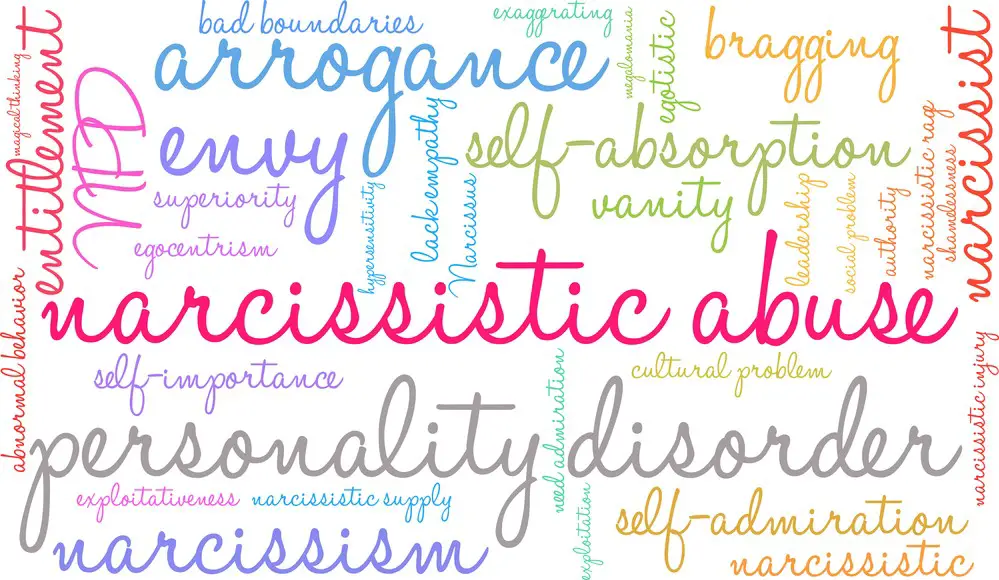As a BetterHelp affiliate, we receive compensation from BetterHelp if you purchase products or services through the links provided
Co-parenting can be challenging, but when your co-parent displays traits of narcissism, it can become even more complicated. Narcissistic Personality Disorder (NPD) is characterized by an inflated sense of self-importance, the constant need for admiration, and a lack of empathy for others. When faced with a co-parent exhibiting these traits, recognizing the signs and understanding how they impact the co-parenting relationship is crucial.
Navigating the complexities of co-parenting with a narcissist requires patience and strategy. A narcissistic co-parent may use manipulation, blame, or control to assert their dominance, which can hinder the well-being and growth of the child. The key to success is learning to identify the signs of a narcissistic co-parent and developing effective strategies to counteract their negative behaviors, ensuring the best possible outcome for the child.
Key Takeaways
- Narcissistic traits can complicate co-parenting situations and hinder child well-being
- Recognizing the signs of a narcissistic co-parent is crucial for adapting strategies
- Developing effective coping techniques can enhance the success of co-parenting with a narcissist

Understanding Narcissistic Personality Disorder
Narcissistic Personality Disorder (NPD) is a mental health condition characterized by a heightened sense of self-importance, entitlement, and a lack of empathy for others. Individuals with NPD often have an inflated self-image and may behave with a sense of grandiosity. This section will briefly discuss some of the key features of NPD, focusing on lack of empathy, entitlement, and inflated self-image.
Lack of Empathy
Individuals with NPD often display a lack of empathy towards others. This means they struggle to recognize or understand the emotions and needs of others. As a result, they may appear indifferent or dismissive of other people’s feelings, even when it involves those they are co-parenting with. This can make co-parenting difficult, as empathy is crucial for understanding and addressing the child’s needs.
Entitlement
A sense of entitlement is another key trait of NPD. People with this disorder may exhibit an unreasonable expectation of favorable treatment, special privileges, or the belief that they deserve to control things in their lives, including co-parenting situations. This entitlement can manifest as demands for unwarranted attention, praise, or even power over others, making it challenging for co-parents to establish a healthy, equal dynamic in parenting their child.
Inflated Self-Image
Lastly, NPD is characterized by an inflated self-image, where the person believes they are exceptional or superior to others. This can be associated with a continuous hunger for admiration, making them hypersensitive to criticism or perceived insults. Co-parenting relationships may lead to conflict when the other parent does not confirm their self-perceptions or challenges their decision-making. The inflated self-image can also lead to a sense of grandiosity, believing they are more influential or powerful than they are in reality.
By understanding these core features of Narcissistic Personality Disorder, it can be easier to identify the signs of co-parenting with a narcissist and take appropriate steps to ensure the child’s well-being.
Signs you are Co-Parenting with a Narcissist
Communication Issues
When co-parenting with a narcissist, communication can be a major challenge. Narcissists often struggle to engage in open and honest conversations. They may frequently interrupt, dismiss, or ignore their co-parent’s needs and concerns. This lack of communication can lead to misunderstandings and increased tension between the two parents. In some cases, parallel parenting, a method where parents disengage from each other and focus solely on raising their children, may be necessary to minimize conflicts.
Manipulation and Control
Narcissists are known for their manipulative and controlling behavior. Co-parenting with a narcissist may involve:
- Parental alienation: A narcissist may turn the child against their co-parent, poisoning their relationship and seeking to gain the child’s loyalty.
- Using the child as a pawn: The narcissist may use the child to manipulate or control the co-parent, such as withholding access to the child or making decisions without consulting the other parent.
- Inconsistency: Narcissists can be inconsistent in their parenting approach, making it difficult for the co-parent to know what to expect and resulting in instability for the child.
Constant Criticism
Narcissists typically have difficulty accepting responsibility for their actions and often deflect blame onto others. Co-parenting with a narcissist may manifest in constant criticism directed at the other parent. The narcissist might point out perceived flaws in the co-parent’s caregiving abilities, parenting decisions, or personal life. This relentless criticism can wear down the co-parent’s self-esteem and create an unhealthy environment for the child.
By recognizing the signs of a narcissist in co-parenting situations, parents can better understand and address the challenges they may face in this unique and difficult circumstance.

Challenges in Co-Parenting with a Narcissist
Setting Boundaries
One of the main challenges when co-parenting with a narcissist is establishing clear and consistent boundaries. Narcissists often lack empathy and have a strong sense of entitlement, making negotiating difficult. Regarding custody arrangements, parenting plans, and decisions concerning the children’s needs, the narcissistic parent may attempt to manipulate the situation and exert control.
To effectively set boundaries, the other parent must maintain a firm, non-emotional stance and communicate clearly. Document all agreements and interactions to create a transparent record.
Dealing with Custody Arrangements
During a divorce, custody battles involving narcissists can be especially challenging. Narcissistic individuals may aggressively push for full custody or use the process to gain leverage in other disputes. Keeping the children’s best interests in mind, the co-parent must remain focused on the legal process and collaborate with legal counsel when navigating such issues.
A detailed parenting plan is essential, outlining each parent’s responsibilities and visitation schedule. This plan should be comprehensive and clear, minimizing the potential for disputes and manipulation.

Maintaining Mental Health
Co-parenting with a narcissist can significantly impact mental health due to continuous demands and manipulative behaviors. Balancing the responsibility of raising children and managing a difficult relationship can lead to feelings of stress, anxiety, and even depression.
To maintain mental health, the non-narcissistic parent should seek support from friends, family, or professional counselors. Setting personal boundaries to prioritize self-care and focusing on the children’s well-being can foster resilience in the face of the challenges presented by co-parenting with a narcissist.
Strategies for Flourishing in Co-Parenting with a Narcissist:
Co-parenting with a narcissist presents its own set of distinct challenges. However, the right strategies can transform from an uphill struggle into a manageable task that prioritizes the child’s best interests. A triumvirate approach involving the development of a comprehensive parenting plan, emphasizing self-care, and constructing a robust support system can be the key to flourishing in this complex dynamic.
Developing a Parenting Plan
A clear, detailed parenting plan is the first crucial step towards successful co-parenting with a narcissist. This plan, akin to a roadmap, should delineate responsibilities, schedules, and protocols for decision-making. A well-crafted plan can act as a shield against the narcissist’s manipulation and power struggles, providing a firm ground for negotiation and understanding. It also fosters consistency, a crucial aspect often lost in the narcissist’s erratic behaviors, and centers the child’s best interests, preventing confusion arising from inconsistent rules or expectations.
Practicing Self-Care
An often-overlooked aspect of co-parenting with a narcissist is the necessity of self-care. This form of co-parenting can be emotionally draining, even debilitating, making it imperative to cultivate self-esteem, resilience, and self-compassion consciously. Investing in activities that induce relaxation and happiness, such as exercising, meditating, or pursuing a hobby, can act as a stress-buster, replenishing emotional reserves. Remember, the adage ‘you can’t pour from an empty cup’ rings particularly true in this situation. Prioritizing your well-being equips you to provide the optimum level of care and emotional stability your child needs.
Building a Support System
In this challenging journey, one mustn’t underestimate the power of a strong support system. Friends, family, or fellow parents who empathize with your situation can offer invaluable guidance, encouragement, and companionship. Joining support groups, or engaging with a professional therapist or counselor specializing in dealing with narcissistic behavior, can further equip you with the tools and resilience needed to co-parent with a narcissist effectively. A robust support network ensures you’re not alone, fostering emotional well-being, boosting confidence, and enabling a healthier co-parenting environment.
14 Rules for Co-Parenting with a Narcissist
Create a Detailed Parenting Plan: A plan outlining custody schedules, financial obligations, and decision-making processes will establish a clear structure and minimize the potential for manipulative behavior from the narcissistic co-parent.
Practice Open and Honest Communication: Ensure transparency in all communication. Limit communication to necessary topics relating to the child’s well-being. Be concise and clear, avoiding emotional content that can be used against you.
Establish and Enforce Boundaries: Clear boundaries around communication, visits, and exchanges. This helps to prevent the narcissistic parent from overstepping or using situations to assert control.
Implement a No Contact Rule: Minimize direct contact with the narcissist wherever possible. This strategy is key to maintaining emotional health and focusing on the child’s needs.
Utilize a Neutral Third Party: Use a third party for child exchanges or communication to prevent the narcissist from creating unnecessary conflict.
Use Neutral Phrases: Use neutral and unemotional language when engaging with the narcissistic parent. This will prevent them from drawing you into emotional arguments.
Adopt Parallel Parenting: This method, where parents disengage from each other and focus solely on the child, can effectively solve the challenges of co-parenting with a narcissist.
Document All Interactions: Keep a record of all communications and interactions to protect yourself in case of legal disputes or manipulative tactics.
Do Not Engage in Power Struggles: Avoid being drawn into the narcissist’s games. Stay focused on your child’s best interests.
Avoid Negative Talk About the Other Parent: Regardless of the other parent’s behavior, avoid speaking negatively about them in front of your child. This helps to protect your child’s emotional health.
Educate Yourself on Narcissism: Understanding narcissistic traits and tactics can help you better navigate the complexities of co-parenting with a narcissist.
Ensure consistency in your home to provide stability for your child amidst the likely inconsistency of the narcissistic parent.
Practice Self-Care: Prioritize your mental and physical health to provide the best care for your child.
Seek Professional Help and Support: Don’t hesitate to contact a therapist or support group familiar with narcissistic behavior. They can provide essential tools, strategies, and emotional support for successfully co-parenting with a narcissist.
FAQs
What are some signs you are co-parenting with a narcissist?
When co-parenting with a narcissist, one may notice their ex-partner frequently blaming others, lacking empathy, displaying a sense of entitlement, and exhibiting manipulative or controlling behavior. Furthermore, a narcissistic parent often seeks to undermine the other parent’s relationship with the child, promotes self-interest over the child’s needs, and struggles to accept responsibility for their actions.
How can you identify narcissistic behavior in a co-parent?
Some indicators of narcissistic behavior include an excessive need for admiration, a lack of empathy, hyperfocus on one’s image, and a tendency to dominate conversations. These individuals may also be unwilling to compromise, deny wrongdoing or apologize, and frequently play the victim to gain sympathy or control.
How can you establish healthy boundaries with a narcissistic co-parent?
Establishing healthy boundaries with a narcissistic co-parent may involve:
- Limiting communication to essential parenting matters and using written communication when possible
- Setting clear expectations for parenting decisions and responsibilities
- Avoiding unnecessary conflicts and choosing battles carefully
- Prioritizing the child’s best interests and establishing a consistent parenting routine
- Seeking support from friends, family, and professionals as needed.
What are some strategies for managing conflicts with a narcissistic co-parent?
Managing conflicts with a narcissistic co-parent may involve:
- Remaining calm, logical, and grounded during interactions
- Avoiding personal attacks or attempts to criticize the co-parent
- Focusing on facts and expressing concerns clearly and assertively
- Detaching from the co-parent emotionally to minimize their ability to provoke reactions
- In parallel parenting, each parent takes responsibility for their parenting time without interfering in the other’s decisions.
Remember that when co-parenting with a narcissist, the focus should be on the child’s well-being and creating a stable environment for them to thrive in.
- Breaking the Silence: Why Men’s Mental Health Matters More Than Ever - April 15, 2025
- How to Transform a Home’s Patio Space into a Relaxing Space - March 23, 2025
- 5 Strategies to Use a Cell Phone to Help Manage Your Stress - March 23, 2025
This site contains affiliate links to products. We will receive a commission for purchases made through these links.



